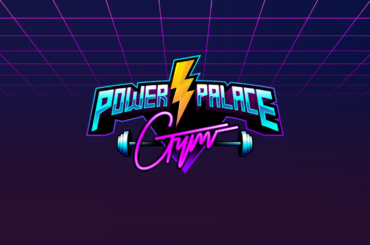Update: Looks like I was IP banned from the Absolute Write Watercooler, despite having a forum account with hundreds of posts and was created back in 2006. In the last post I read before the banning (and which I tried to reply to) Admin MacAllister accused me of trying to promote a book even though I never posted a link to anything! Laughable. All I did was point out how her chum was dispensing horribly incorrect advice to self-published authors that would achieve nothing but hurt their sales.
So anyone who wants to know why Melodi “Macallister Stone” Sherman and Medievalist AKA Lisa Spangenberg banned me from Absolute Write Water Cooler can simply read this article. I bet anything I can make this blog article one of the top ranking search engine results for their usernames using the very SEO techniques they despise!
In fact, lots of people have complained about their bullying it seems. Also here and here, too. Also here.
I know that as a new author I wasted tons of time taking bad advice from these ladies, and I know other authors who did, too.
##
This article is in response to the thread http://absolutewrite.com/forums/showthread.php?241431-How-to-promote-your-book-like-an-intelligent-human-being-and-not-an-SEO-Dweeb .
As an SEO expert (if you didn’t know, yeah I am) who has used my knowledge to successfully promote my own books, I dislike being called a “dweeb” and find it the prime example of why Absolute Write Watercooler admins often don’t know what they are talking about, and I’m sick of their crap because when they get called out on it, they turn to deleting threads and banning people. This is sad because unfortunately their forum is one of the most popular hangouts for authors since it is among the oldest.
The article I am countering to is written by Lisa L. Spangenberg, who goes by the username Medievalist on the Absolute Writer Water Cooler forums and is an admin. It should be noted I used to spend a lot of time there back in the mid 2000s. But I abandoned it in 2010 due to folks like her.
Before we get started, here is Lisa’s Author profile on Amazon. If you look at the sales rankings for her books, it’s obvious she doesn’t sell any of her own self-published books as her sales rankings are above 1 million. This means her books do not sell.
Her professional credentials are purely in the academic world, where people are rewarded for just writing essays and actual sales are irrelevant. She is the very last kind of person who should be giving advice to those looking to make book-writing a commercial endeavor.
By contrast, my books have reached the top sales position for their categories and have Amazon sales rank in the hundreds of thousands, meaning they are selling copies every day, and are doing so in highly competitive niches like video production and marketing.
So I take a lot of offense to her article. An “intelligent human being” is someone who can use Search Engine Optimization. It’s clear Medievalist doesn’t understand what SEO is or how to do it for her own books, which results in the disdain she clearly has for the practice. This ignorance should not spread and that article should be unstickied, but it won’t because somehow this idiot has managed to become a moderator of a writer forum so she can simply ban anyone who calls Lisa Spangenberg out on her crap.
In fact, prior to writing my response to her article it’s been a number of years since I returned to those forums. I abandoned them after getting tired of the bad advice that was constantly getting dispensed here, and I’m disappointed that it’s gotten so bad that common sense is being ignored. is perhaps the worse marketing article I have ever seen in my entire life and I am dumbfounded that authors are being directed to it.
As someone who has built a six-figure business using primarily SEO to generate customer leads, I can tell you her article on book promotion for self-published authors is woefully wrong and that article should be removed because it is leading many self-published authors down a path of foolishness that will only ever waste their time. Like, if I had an employee who ever posted such a thing I would terminate them on the spot because it would demonstrate they have NO IDEA how to market a product and obviously are not competent at their job. That is how awful that article is.
Medievalist aka Lisa Spangenberg, your advice that “good writing” is more important than marketing is wrong. It’s not a matter of opinion; it is just factually incorrect. SEO and “good writing” are not even in the same category of thing as one another.
- Writing a book is a manufacturing process. It is the creation of a product.
- SEO is a marketing process. It is the promotion of a product.
The simple fact that there are barely comprehensible non-fiction books (because they were churned out using article spinning software) hitting best-seller spots on Amazon proves that “good writing” doesn’t sell itself.
Take a look at the foreign language learning, nutrition and travel niches on Amazon for obvious examples of what I am talking about.
A well manufactured product never sells itself. If that were the case nobody would invest into product packaging, sales staff or perform any kind of paid advertising. You always have to tell the customer why they should buy the product, and in the case of selling books this is even more crucial because nobody can open your book up to read it unless they are first aware of the book.
Having a “quality product” is nothing more than having a solution to some problem. In this case of non-fiction books it is often how to do something, whereas with fiction it is to satiate a reader’s appetite for certain kinds of stories they are looking for. But in all cases they must first discover the book in order to buy it.
How is anyone supposed to discover a book if authors do not promote them? What is it you suggest in place of SEO?
Instead of SEO you suggest authors send out email queries to blogs; basically you tell authors to focus on requesting customer reviews, which is perhaps the most challenging kind of promotion to do and simply will not be feasible for the average self-published author who has no social media presence, prior work or any kind of notoriety that will warrant attention to the review requests.
Your suggestion that authors should simply write well and then send out review copies demonstrates you have no actual experience successfully promoting books as a self-published author who is new to the market and have gone through the ropes yourself.
Those few blogs which actually perform unpaid reviews fall into one of two categories:
- Low viewership to the blog, meaning sales from the review will be non-existent.
- High viewership to the point the blogger(s) are overwhelmed with review requests and are consequently very selective in the books they take.
If you compare the time an author invests into trying to convince people to review their books, and the same amount of time into SEO, SEO will produce more sales. This is because SEO allows you to get your book in front of potential buyers, whereas querying bloggers who review books will rarely result in an actual review getting produced.
SEO allows you to create your own page on the internet that tells people why they should buy your book, rather than try to convince someone else to write that web page. Just do it yourself!
Listen to me; I sell books every_single_day and I only sell books every day because I SEOed the hell out of the books. My sales landing pages get 10,000+ views a month or more and this converts into regular sales of books.
Also the advice to just talk to people online, to “comment without leaving a link to your book”, and somehow this will magically generate sales is equally poor advice. People buy a product when there is a problem / solution fit, not because you made internet friends with them.
If I never did any SEO I would have sold no books, period.
Authors who wish to self-publish need to become masters of self-promotion, and online sales are the cheapest and most efficient kind of sale to acquire because you can tailor your sales funnel pages. Creating sales funnel pages for your book and optimizing the articles for search engine queries is one of the few ways that anyone can use to generate sales for their books, and to deter people from doing so is simply irresponsible advice.
If you are an Author who gets upset when you see a 20 page ebook of barely comprehensible Engrish outselling your 300 page masterpiece, and wonder why that is happening, the answer is simple: It’s because the other author had no qualms with using SEO to build awareness of their book, while your book sits lost in the hundreds of other Amazon results with the other authors who think themselves too good to promote their own books.
Good products do not sell themselves. Good salesman sell, and part of being a good salesmen these days is leveraging the internet to generate customer leads. So do it.
Fight fire with fire. Authors should learn how to use SEO techniques to build awareness of your book from search engine results. It’s perhaps the only form of promotion you can do that will actually generate sales for the low price of web hosting and a domain name.
##
Now I will answer questions that I had been asked in the forum thread before Melodi “Macallister Stone” Sherman banned me for pointing out why her fellow Absolute Write Watercooler admin Medievalist AKA Lisa Spangenberg was wrong .
I won’t include the user names to protect people.
“What is SEO Anyway?”
SEO stands for search engine optimization. The goal of SEO is to get a specific website page to rank higher in search engine queries for specific phrases.
For example, if you wrote a book about paleo diet, you’d want to identify what people type into Google Search to locate information about the paleo diet such as recipes and such. Identifying the specific phrases people enter into a search engine, and then using these phrases in your blog article will cause a search engine to place that article into the list of pages to suggest to the person conducting the query. The “rank” of your page is then determined by dozens of other factors, such as number of backlinks from other sites, freshness, the “authority” of the domain address the page is on, number of times the phrase (and related phrases) appears in the article and so forth.
SEO is a very technical discipline which requires constant education, as search engines are always updating their algorithms. There’s many blogs which focus on providing this information.
The goal of an author employing SEO is to build a sales funnel page for your book that is filled with ad copy designed to entice someone to buy the book, and then get this page to rank on the first page of results on Google, Bing, etc. when someone is looking for a book like yours. Sometimes these sales pages are stand-alone websites, and other times they are part of a publisher website or the personal blog of an author.
A lot of SEO these days is focused on content marketing, which means giving away free information designed to establish expertise and then lead the reader to buy your product that will further solve the problem they have. With the paleo example, you might list some recipes from your book on your blog article, and then ask the reader to buy your book if they want more recipes.
An example for fiction would be to identify phrases people are entering into Search engines, such as “books like Harry Potter” and then make an article called “Books like Harry potter” and put your book into the list.
If you are a writer, there’s absolutely no good reason to not learn how to do SEO. One of the main requirements is to be a writer, so if you can write a book half the job is already done. The next step is to understand how search engines work and then use tools to identify the popular search queries that would be relevant to you. There are many free ones available, including provided by Google (such as the AdWords keyword Planner).
“I don’t buy books online and I assume other people don’t either.”
This is another thing; assuming your personal habits are the same for millions of other people.
I don’t know how truthful your statement is, that you don’t use search engines to locate products.
What I do know for a fact is that the reason Google makes billions of dollars a year off paid advertising is because the overwhelming majority of consumers use search engines to locate products to buy. Amazon itself is a search engine.
Why you would not want to understand how the #1 bookstore in the world works and leverage this knowledge to sell your own books, I cannot relate to. It’s pretty counterproductive.
I attribute author disdain for self-promotion to much of the garbage written in agent and publisher blogs that authors are reading and repeating as if it’s the gospel truth. Of course they don’t want authors to learn how to self-promote. If authors knew how to sell their own books, they’d be out of a job. But I guarantee you any publisher who is selling books is employing someone to do SEO on sales pages for those books. It is the cheapest and easiest kind of promotion possible.
Step 1. Make a list of every book that you think your book is similar to.
Step 2. Find a SEO analysis tool in your price range. I won’t recommend any specific ones, as I don’t want people to assume I am here to promote any service. Do your research, check the top SEO blogs and find one that is adequately priced. The tool should work for both Google and Amazon.
Step 3. Enter the titles of those books that are similar to your own into the analysis tool and keep track of all the long tail keywords (any search phrase of more than 3 words, like “Yellow-haired Siberian kittens“).
Step 4. Put those keyword phrases into your book product description field on Amazon, smashwords, etc. as part of the summary. Don’t just keyword stuff, make meaningful sentences using those keywords.
For the search phrases that get the most search queries (thousands at the bare min. ; ideally at least tens of thousands but this also depends on the popularity of the niche) write a 800+ word article for your blog using that search query as the title of the blog. For example, “How to breed yellow-haired Siberian kittens” might be one of these popularly searched for queries that you write a blog article about.
Step 5. Put a direct link to your book sales page in the article. Your book sales page should be on your own domain for it, likeyellowhairedsiberiankittens.com or something. From the sales landing page then link to where it can be purchased, Amazon or such. Use an affiliate tracking code, or a URL shorterner at least so you can keep track of how many sales you actually generate from this sale landing page and refine the sales copy on the page to get more click-throughs.
This is a very basic summary. There are more advanced things you can do but I would be writing a book all day.
“People won’t buy my literary novels on the internet because they don’t search to buy books when looking for articles about literary fiction.”
Think of it as creating an opportunity.
If someone has expressed an interest in a subject, they can often be convinced to purchase a product related to this interest. That’s why the world has so many odd products for cooking; lots of people like to cook, so they can be convinced to buy some weird contraption that claims to improve their cooking.
Likewise if someone is interested in a specific genre of fiction, you can suggest your own books in the sidebar of your blog and people will check those books out and possibly even buy them. I sell books on my own blog like this.
But let’s move past the genre. I’m sure your book is about something, and I’m sure lots of people are searching about that something on Google. If you create like four articles about that subject and get that article to rank well for search queries related to that subject and you list your book in that article as something people might be interested in, you will generate awareness that simply did not exist before about your book. And building awareness is the only metric that truly matters in marketing; the more awareness you have, the more sales you make.
“I don’t think people look for fiction on the internet.”
If people didn’t use search engines to look for fiction, then why do people write book blogs? How do you think they get the traffic then? How do they manage to build a business out of ad revenue and Amazon affiliate clicks if they aren’t getting viewers to their blogs? These are things your assumptions don’t consider.
Type “best new fantasy book”, “fantasy books 2015”, “new fantasy books” and then use a tool to check the traffic on these sites and you’ll see people do in fact use search engines to locate fiction. You can replace “fantasy” with any genre and you’re going to find high search volume and traffic.
Let me tell you why Amazon is the world’s #1 bookseller. Because millions of people use search engines to buy books.
There seems to be some disconnect here – the sticky doesn’t say ‘without ever using SEO;’ it advises on book promotion without being ‘an SEO dweeb.’ These are two different things, as are fiction and nonfiction.
Fiction and nonfiction books are both products. Doesn’t matter what the product is, the techniques are universal. The specific details of what your persuasive writing designed to sell the product may be different, but the technique is the same. Sales is sales.
There’s a difference between utilizing SEO to try to get a Paleo cookbook in front of people searching ‘Paleo recipes.’ and attempting to use SEO to sell a novel. I don’t know who uses search engines to look for novels.
Everyone who uses Amazon. It is a search engine, after all. The commonality that all search engines have in common is they use textual data to determine placement of page rankings. So if you know how to write an article that will rank highly on Google, you also know how to write a book product description and choose a book title that will rank highly for desired search queries on Amazon.
This is important stuff for authors to master in the age of digital sales.
“That barely-literate Wiki paste jobs end up on the top of Amazon ‘bestseller’ lists is indicative of nothing… Fairly quickly, literacy will out.”
Sure, if your book is discoverable. That doesn’t change that the sole reason a poor quality book will outsell a superior quality book is due to better marketing on the part of the inferior product.
Marketing is actually more important than manufacturing quality. This is why most of our products are manufactured in third world countries but the marketing is done in the country the product is being sold (and the marketers are paid more than the manufacturers are).
This shouldn’t be construed as endorsing the sale of poor quality products. Rather I am pointing out you can’t compete with inferior products using better marketing unless you yourself also good marketing habits.
And books are products. If you don’t think your book is a product then you don’t need to sell it to anyone.
In her article Medievalist AKA Lisa Spangenberg says that authors should not be constantly trying to promote their books. This is nonsense. If you aren’t constantly selling your book and you are a self-published author, WHO WILL? I guarantee you that your book will never become a trending topic on Twitter if nobody knows it exists. Only a minority of purchasers ever bother to leave reviews for products or share those products with friends and such.
Mostly what people share on social networks are advertisements which you yourself must create and promote to get those re-shares. I know quite a lot about this, because I’ve leveraged social networks to sell for a long time. If you want a link to your book to get shared on social networks, you have to create the initial post and promote it yourself (often using paid ads no less). I’ve done this with videos that have acquired hundreds of thousands of views on Facebook, and photo ads that get hundreds of comments and reshares. It’s a good way to promote a product like a book, but it requires having specialty knowledge of how social network ad platforms work (i.e. how to use Facebook Power Editor to tailor an ad so it is only seen by people who will buy books, which requires using behavior category filters many people don’t know exist and won’t be obvious in the settings). And it costs money, at least $500 or so to get results.
By comparison, $9.99 on a domain name and then $15 a month for web hosting, and a $50 WordPress template that you then setup yourself is cheaper and will generate sales for a long time if you successfully get the site to rank for good search queries. All you need to do is invest into time writing the articles and sales landing page, and then sharing the link (and yes, absolutely share in forums related to your book. So long as the culture on the forum is supportive of people who contribute to the community by writing books, you will generate goodwill and make sales). And that is a better use of time than trying to email hundreds of bloggers and beg for a product review. You should only do that after you’ve setup a sales funnel and done SEO work on your sites.
Hoping hundreds of thousands of people just magically discover your book and reshare it with your friends is never gonna happen, and it’s unlikely there will be a repeat of what authors like Amanda Hockings experienced, who got an explosion of sales because they launched when the Kindle store just came out and there was little competition. Now you have to actually work at promotion to get results.
##
This ends my counter-post to the insanely idiotic nonsense that Melodi “Macallister Stone” Sherman and Medievalist AKA Lisa Spangenberg tell new authors on the Absolute Write Water Cooler. As my blog routinely receives 20,000+ views a month and this article is quite lengthy I have a strong suspicion it will start ranking for their names in a week or two, defeating their attempt to silence my voice.
If anyone has any comments or questions, feel free to ask.




